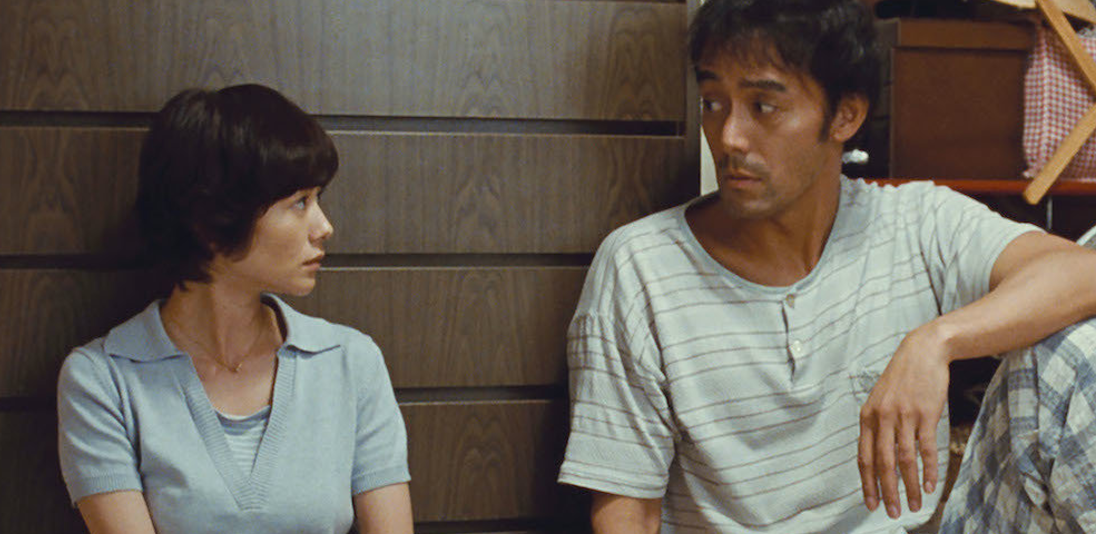“Why did my life turn out like this?” This is the question ruefully (yet acceptingly) posed by one of the subjects Ryôta Shinoda (Hiroshi Abe) corners with incriminating evidence for the detective agency he works at. As she is shown the luridness of her affair and faced with the threat of losing the case for getting alimony in her impending divorce, Ryôta gives her a counter-solution that will work in her favor. Indeed, he makes most of his living by going in league with the very people he was hired to ruin. This glimmer of hope–the allusion that life can work out for the best when you least expect it–is not the larger theme of Hirokazu Koreeda’s After the Storm. In fact, this is the only instance in the film when any indication of optimism about the course things can take is presented.
Otherwise, After the Storm is an often merciless account of what it’s really like to simply be an average person chasing the same dreams that once propelled them in their youth but only now serve to highlight how stagnant they’ve remained. In Ryôta’s case, holding on to the former grandeur of his award-winning novel, The Empty Table, is what ministers his primary sense of failure and loss in the present–not to mention the most palpable loss of all: his wife, Kyoko (Yōko Maki), and child, Shingo (Taiyô Yoshizawa), the former of which divorced him and is now dating someone far more affluent.
At the core of it all is Yoshiko (Kirin Kiki), Ryôta’s mother who lives in a housing complex populated primarily by other elderly women–save for one man her age who hosts a weekly gathering centered around classical music. The ghost of Ryôta’s father haunts both of them in different ways, with Yoshiko constantly lamenting the lack of money her deceased husband had and Ryôta often fearing he’s just like his patriarch, the man who bought lottery tickets and pawned everything he could for an extra yen. There to confirm his worst fear is his sister, Chinatsu (Satomi Kobayashi), constantly accusing him of plotting to take what little money their mother has from her, when it is she who so frequently dips into Yoshiko’s pension for her own family.
The contention stemming from all forms of his familial bonds adds to Ryôta’s increasingly unshakeable sense of defeat. That the only offer he has in the writing realm is for a manga series (and not something half as meaningful as Ghost in the Shell) doesn’t encourage him. A continued inability to start anew trunks from his rootedness in the past, and how he could have changed it–done it all differently for the better.
For Ryôta is like most people: when we see something slipping away from us, it only makes us want to hold on to it all the more. Especially in matters of love. And when an approaching typhoon presents Ryôta with a unique opportunity to attempt getting his family back, he seizes it in the lackluster way typical of his character. But Kyoko is no longer amenable to the only thing she once placed emphasis on in her youth: love–or rather, the Goethe imagining of how intense a love should be.
As Ryôta rallies for reconciliation, Kyoko informs him matter-of-factly: “Grown-ups can’t live on love alone.” And it’s true, the notion of love in its false storybook incarnations fades from most adults’ beliefs as they age. Like the acceptance of what one’s life has become versus how he thought it would turn out, our perception of love evolves.
Throughout the typhoon, the epiphanies Ryôta has are that which he has always known beneath the surface of his self-preserving denial. It is only when he imparts Shingo with the wisdom that even if he never becomes what he thought, the point of existence is to strive for becoming what he wants until his dying day. Because to cease striving is to cease living, even if it does appear that trying so often yields nothing more than heartache. After the Storm, in all its grimness, maintains that the heartache is what we must learn to take in stride on our grander life path.






















